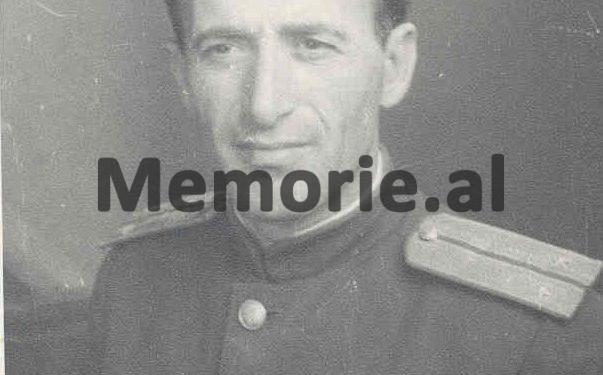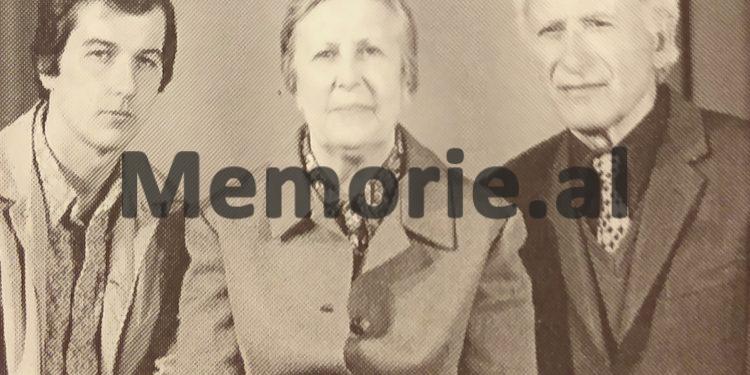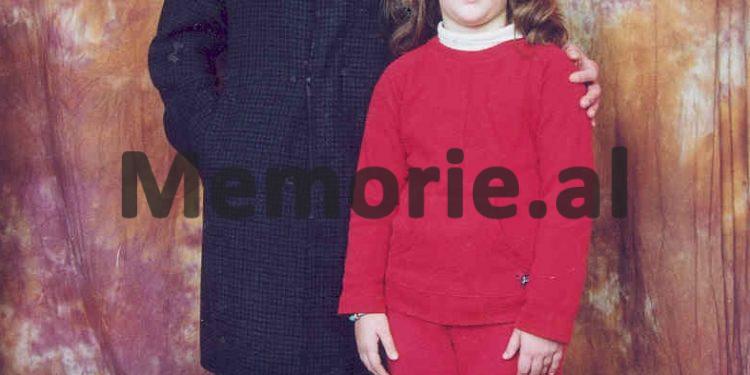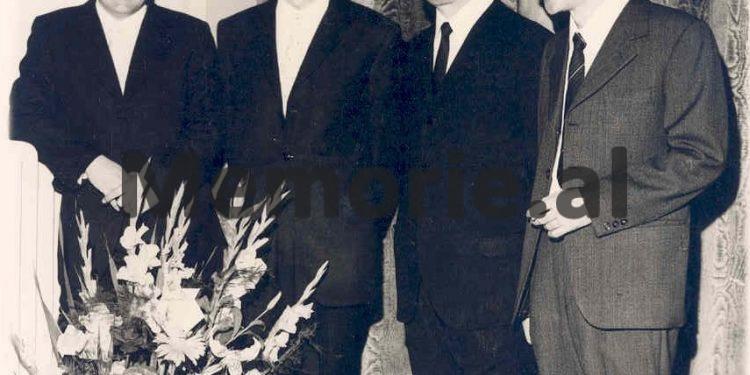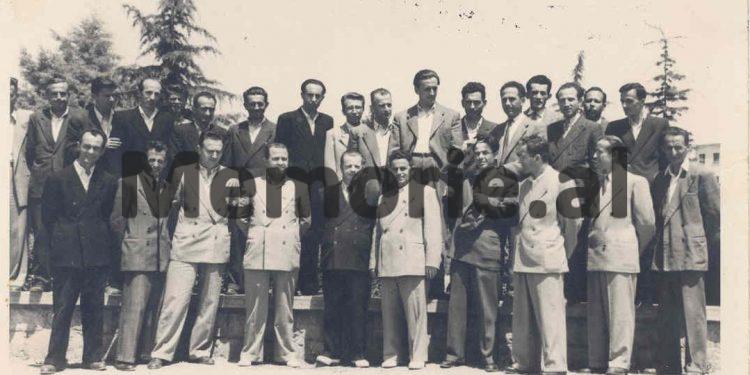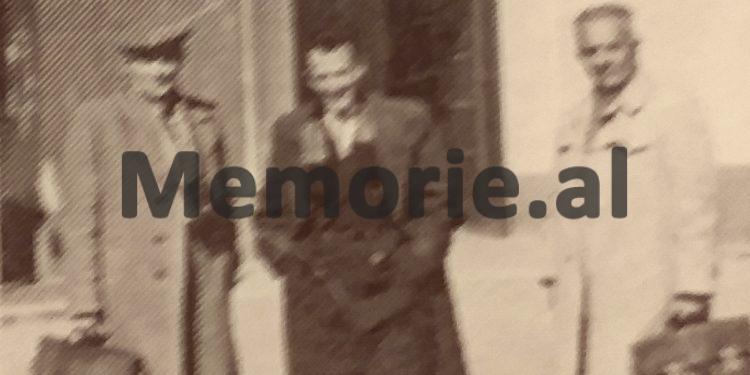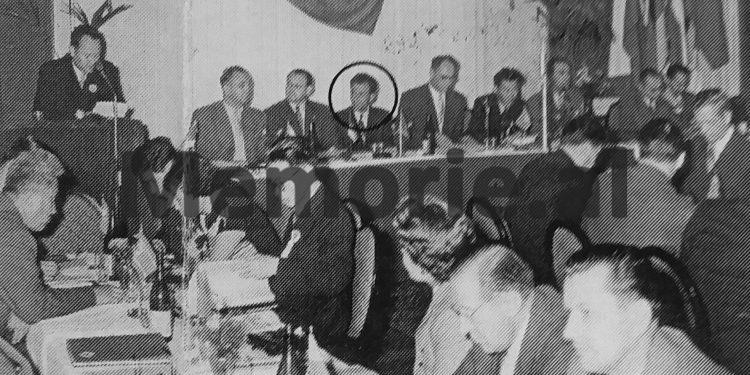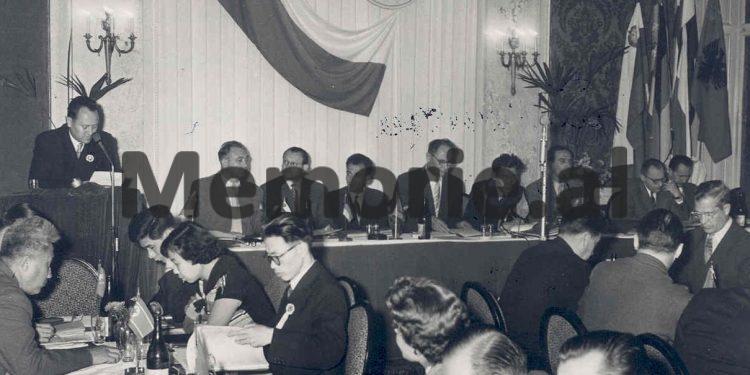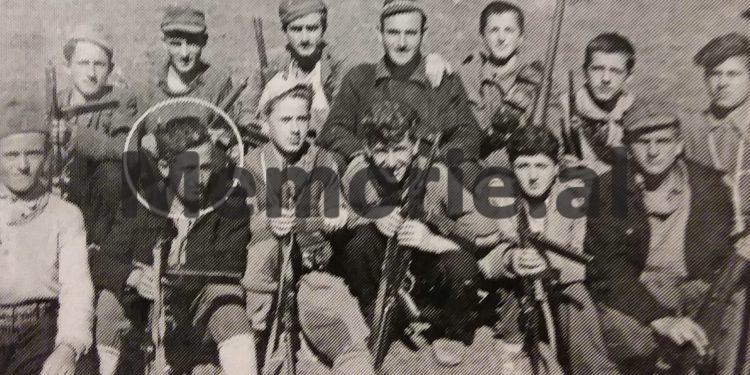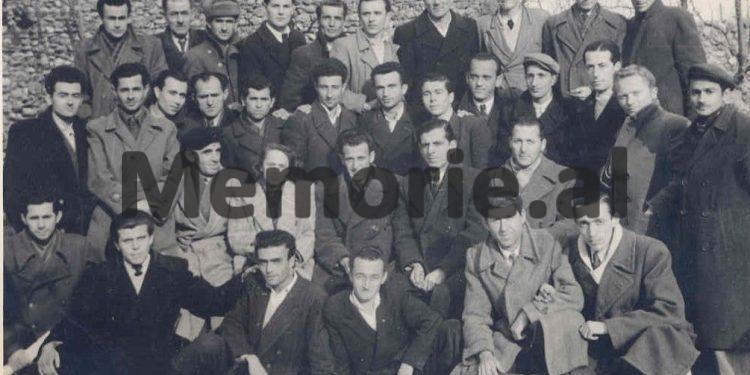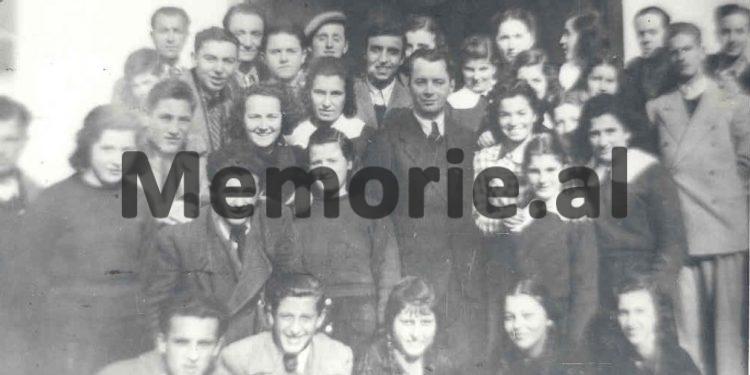Dashnor Kaloçi
Memorie. al publishes the unknown story of Petro Takut, a former communist of the first hours and a classmate in the Tirana gymnasium with Manush Alimani, Ramiz Alia, Ibrahim Uruçi, etc., and after the war with various tasks such as; First Secretary of the Youth Union for Kavaja and Shijak, Director of Tourism and Trade Advisor at the Albanian Embassy in Rome, who in June 1976, was arrested after Enver Hoxha declared him “enemy and collaborator of the sabotage group in Economy ”, headed by Abdyl Këllezi, Koço Theodhosi, Kiço Ngjela and Vasil Katin. How he was arrested in the town of Gramsh where he had been appointed deputy director of the Commercial Enterprise by investigator Nevzat Haznedari, and after 23 months of investigation under inhuman torture, was sentenced to 20 years in prison by the president of the court, Ali Zanko.
“After working for five years, as a trade advisor at our embassy in Italy, I was returned to Tirana and appointed deputy director of the Commercial Enterprise in the city of Gramsh. After six months in that position, on June 2, 1976, Nevzat Haznedari, the General Director of Investigation, and Kristofor Martiro, one of the chiefs of that investigation, came to the offices of our company. These two were accompanied by the chairman of the Gramsh Internal Branch. They gathered all of us employees of the administration, in the office of the director, where the chairman of the Internal Branch of Gramsh, addressed us saying: ‘The situation in Albania is turbulent, because recently several groups of various anti-party. But our party will give them the blow they deserve. We have come here, that among you, unfortunately you have an enemy, which is Petro Taku. “Immediately after that, they handcuffed me and took me to the” Gaz “that was waiting outside, and we left for the Inner Branch of that city”. This is how Petro Taku remembered his arrest in the city of Gramsh, where he was transferred after returning from our embassy in Rome. Former communist since 1942, partisan and First Secretary of the city of Kavaja and Shijak, for many years senior staff in the Ministry of Trade and Director of Tourism in Albania, in the interview we received a few years ago, told the story of full of vicissitudes, passing from the offices of the Ministry and embassies, to the dark cells of Albanian prisons, accused of being a “saboteur with the hostile group of Economy, together with the two deputy prime ministers Abdyl Këllezi and Koço Theodhosi, as well as the two ministers: Kiço Ngjela and Vasil Kati.
Mr. Petro, can you first tell us something about yourself?
I was born in the city of Kavaja in 1925, where my family comes from. In 1935 I came to Tirana as a boarder in the secular gymnasium. In 1942, I graduated. During those years, my classmates were Ramiz Alia, Manush Alimani, Muhamer Spahiu, Filip Vucani, Ibrahim Uruci, etc.
When did you first become acquainted with communist ideas?
My friend, Vasil Nathanaili, spoke to me about communism for the first time in the early 1940s. Vasili, since the establishment of the Albanian Communist Party, has been a member of the Tirana District. I joined the party in June 1942, in a cell in the city of Durrës. My activity as an anti-fascist caught the eye of the Italians, who wanted me to arrest them. For this reason, Vasil Nathanaili, in September 1942, ordered me to go to my hometown of Kavaja, with the position of Secretary General of the Communist and Antifascist Youth of that district. At that time, the communist youth in the city of Kavaja almost did not exist at all and I had to do a great job to organize that organization. After the position of General Secretary of Youth, I was assigned the position of Secretary of the Communist Party for Kavaja, a position which I held until 1943 and then I was transferred to Peza.
What tasks did you have after that?
I was assigned as the company commissioner in charge of the battalion youth. From Peza, I was elected delegate to the First Congress of Communist Youth, in Helmas of Skrapar. When we returned from the Congress held in Helmas, the 22nd Assault Brigade was formed and I joined by being appointed as the organizational secretary of the Youth in the Peshkopi area. From Peshkopia I was appointed First Secretary of Youth for Kavaja and Shijak. After the First Party Congress, I was brought to Tirana and assigned to the Ministry of Economy and Trade. In 1958, I was appointed Director of Tourism, a position I held until 1962, when Albania seceded from the socialist camp. In 1965, I was appointed Chief of Commerce in the Executive Committee of Tirana, chaired by Abdyl Këllezi, then in 1969, I was appointed Vice President of the Chamber of Commerce, a position I held until the 1970s when I was appointed advisor. for Trade, at the Albanian Embassy in Rome.
What education did you have at the time and who chose you to go to Rome?
With the establishment of the Higher Institute of Economics, I graduated there, and then in 1966 I graduated in Law, receiving my second degree. In the early 1970s, I was called by the chief of staff of K.Q. of the ALP, Mihal Bisha, who told me that: The party had thought that I should go as a Trade Advisor, near our embassy in Rome. I agreed to go on one condition that I take the little boy with me. This request was approved and in April I went with my wife and my son to a new assignment in Rome.
What work did you do at that embassy?
I was attached to the embassy and depended on the Ministry of Trade in Tirana. After the ambassador, as an official function, I was the number two figures in that embassy. My task and that of the employees who depended on me, was to find various firms and enterprises to conclude trade agreements for import-export with Albania. In fact, we were as commissioners and we just found the markets, the different firms and then entered into negotiations because the deals were concluded by the Ministry of Foreign Trade and its enterprises.
What did Albania export and import at that time?
At that time, the Albanian state exported some mineral raw materials and handicrafts. After my visit there, for the first time Albania introduced to the Italian market, many new export items, such as: textiles, clothing, blankets, chrome concentrate, copper blister, sulfur, caustic soda, gasoline, brandy, cognac, live pheasant, canned fish etc. From 20-25 firms working with us until 1969, in 1974, we increased them to 120 firms and significantly increased the export of medicinal plants. When I went to that embassy, the import-export trade volume for 1969 was $ 6 million. At the end of 1974, when I took office, the trading volume increased to USD 65 million.
During your time at the embassy in Rome, how was your relationship with your bosses?
I had very good relations with Ambassador Pirro Koçi, with the ministers who covered our sector, I had normal working relations.
When were you fired from this job and what were the reasons?
In March 1975, I was called to Tirana and told the Ministry of Trade that I had to resign. I was told that my stay had expired, but I later learned the reasons for my dismissal from the embassy.
What were these reasons?
When I returned to Tirana, the blows had started against Koço Theodhos, Abdyl Këllez and Kiço Ngjeles Vasil Katit, who were called the “hostile group” in Ekonomi, with which they implicated me.
When did you return to Tirana where you were appointed?
I was appointed deputy director of the Commercial Enterprise in the town of Gramsh, where I worked for six months until June 2, 1976, when I was arrested.
Who arrested you and on what charges?
It was June 2, Tuesday, I remember well the day when Nevzat Haznedari, the General Director of Investigation, came to our company, together with Kristofor Martiron, one of the chiefs of that investigation. These were accompanied by the chairman of the Gramsh Internal Branch.
What did they tell you?
We of the administration gathered us, who were about 12 employees and when we entered the office of the director, the first speaker was the President of the Gramsh Branch, who among other things said: “As you know the situation in Albania is very difficult, because of the different anti-party groups that are being discovered. But our party will give you the blow you deserve. “Among you is one of the enemies, Petro Taku.” After his speech, I was handcuffed and with the “Gaz” waiting outside, they sent me to the Internal Branch of Gramsh, where after the control, they took my party card.
Did you think that after returning from Rome you could have any consequences?
But when they returned me, I doubted something, because there was no reason to move me from there, when the work I had done was quite fruitful. But when Këllezi, Theodhosi, Ngjela and Vasil Kati were hit, I thought that I could be affected as well, since I had worked with them for many years, but to be arrested as an enemy, when I had not thought of it.
Have you ever met Enver Hoxha, did you know him?
I had never met Enver and he did not know me. But in 1975 in the Plenum of the Central Committee of the ALP, in which Këllëzi, Theodhosi, Ngjela and Kati were beaten, among the discussions and questions asked about them, was the question that Kadri Hazbiu addressed to the Theodhos Brothers that: what you have a connection with our commercial attaché in Rome, their answer was that they only had a working relationship with me. But Enver Hoxha intervened by saying to Kadri: “What attaché are you talking about”? “For Petro Takun”, said Hazbiu. Enver intervened again and said: “Kadri, sit down and do not waste our time with Petro Taku, because he is an enemy and is a puppy of these”.
After you were sent to the Tirana investigation, what happened to you?
After three days in the New Prison, they began to interrogate me without giving me an indictment, and the investigators began to wage a psychological war to intimidate me, to make it easier for them to do what they wanted. After a long fight against me that lasted several days, I was charged with “abuse of official position.” Also, after the arrest, in my house, the investigator made a meticulous search and all my personal belongings, including clothes, were locked in a room, which I never took.
What were you accused of?
From the beginning, the investigation sought to implicate me with what they called, “The hostile group in the Economy”, which according to them was led by Abdyl Këllezi, Koço Theodhosi and Ngjela, who were considered enemies. They asked me to sign for their “hostile” activity. I told them that as long as I knew them and had worked with them, I did not know them as enemies. And so, I do not sign. The accusation against me for sabotage included several points, where according to them: I had not made trade agreements to export goods with Latin American, African and Asian countries. Second: I had not encouraged the export of small items and third that: we had imported a bird breeding machine which was planned 1.2 million USD, which according to them was defective, because it could not belt the small birds, which were under 1 kg.
Were these allegations grounded?
All the accusations against me were baseless, because it was not my job to make trade deals with countries like Asia, Africa and Latin America. There were other trade advisors at the respective embassies. So, for example, just for Asia, in our embassy in China, there were two groups with a staff of 12 employees. The accusations against me had no logical basis, as they were all of a political nature. During the period I was working in Rome, the ambassador often asked me, according to the order he had from the Central Committee in Tirana, to help the faction of the Communist Party of Palmiro Toliati, the so-called “Communist Group”, who were expelled from their party and left in fraction on its own. I was asked to hire them as commissioners, to make big bucks in dollars from the goods we sold. As far as I know, for those communist groups, the embassy had a special fund that was set by the senior leadership of the ALP. These payments they allegedly received to set up and keep alive the communist movement in Italy. In the building of our embassy in Rome, a special apartment was reserved called the reception house, which occasionally housed the leaders of Italian communist groups and those of other countries when they came to Albania in transit.
How were they treated during the investigation?
Apart from psychological torture, they did not allow my family to visit me and did not allow any food from the family. For 23 months, they used the most inhumane torture on me to admit their accusations, but that did not happen.
But under what circumstances did the trial take place?
After a 23-month investigation, in May 1976, I was taken to court, presided over by A. Xango (Supreme Court), which took place in the premises of the New Tirana Prison, behind closed doors. From the beginning of the trial, I had a heated debate with the prosecutor and the President of the Court, Ali Zanko. With convincing facts and arguments, I rejected all the accusations made against me, as a “saboteur and enemy”.
Were there any witnesses against you?
I was brought in by some witnesses who had once worked with me, whose false testimony aggravated my position. Those lucky ones, were forced to accuse me in that shameful way.
How much did they punish you?
At the end of the trial, I was sentenced to 20 years in prison on charges of “sabotage” by the Supreme Court, which rendered a final decision without the right to appeal.
Where were they sent to serve their sentences?
To serve my sentence, I was taken to Spaç camp. As I showed above, the personal clothes they kept locked in a room of my house were confiscated. If there was any dissatisfaction with these actions, they were justified by the fact that the court had decided to compensate for the “abuse” I had committed in Rome.
When were you released from prison?
I was released from prison in 1987, following a special decree issued to me by the Speaker of the Presidium of the People’s Assembly, Ramiz Alia, after I sent him a letter from Spaci in 1986, after Enver’s death. In the letter to Ramiz, I explained in detail the whole history of my sentence, where I did not apologize, but only insisted on being acquitted, because I had been wrongfully convicted. Thus, after suffering 11 years in prison in Spaç, I was released./Memorie.al




